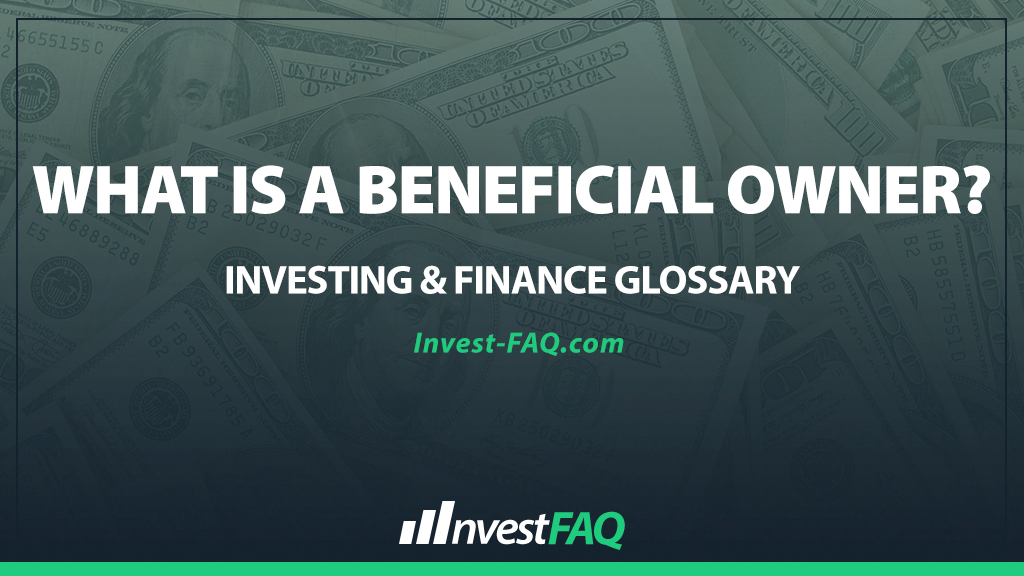
Beneficial Owner
Contents
A beneficial owner is an individual or entity that enjoys the benefits of ownership even though the title to some form of property or asset is in another name. It refers to the natural person(s) who ultimately owns or controls a customer or the person on whose behalf a transaction is being conducted, including those individuals who exercise ultimate effective control over a legal person or arrangement.
In the business context, understanding the beneficial owner of a company is crucial for legal and financial transparency, particularly in compliance with anti-money laundering (AML) regulations and know-your-customer (KYC) requirements.
It helps in identifying the individuals who exercise significant control over companies, trusts, and other entities, thereby ensuring that the financial system is not misused for money laundering or terrorist financing.
This is particularly relevant in transactions involving high-value assets, international trade, or financial services.
Example of a Beneficial Owner
Consider “Global Trade LLC,” a trading company that is legally owned by a holding company registered in an offshore jurisdiction. The beneficial owner of Global Trade LLC, however, is Mr. Smith, who owns 75% of the holding company and makes all key operational and financial decisions for Global Trade LLC.
In accounting for Global Trade LLC, recognizing Mr. Smith as the beneficial owner would involve documenting his control and ownership stake in the company’s records, especially in financial disclosures and when conducting transactions that require AML and KYC compliance.
This documentation affects the company’s financial reporting and compliance processes, ensuring transparency and adherence to regulatory requirements.
In this scenario, identifying Mr. Smith as the beneficial owner ensures that financial institutions and regulatory bodies understand who ultimately controls Global Trade LLC, despite the complex ownership structure.
For accounting and financial reporting purposes, this knowledge helps in assessing the company’s risk profile, conducting due diligence, and fulfilling legal obligations designed to prevent financial crimes.
Significance for Investing & Finance
The concept of beneficial ownership is significant in accounting and finance for several reasons:
Compliance and Transparency: Identifying beneficial owners is key to complying with AML, KYC, and other financial regulations aimed at preventing illegal activities and ensuring transparency in financial transactions.
Risk Management: Knowing the beneficial owners of businesses and assets helps financial institutions and companies assess and manage risk, particularly in relation to money laundering and financing terrorism.
Corporate Governance: Understanding who ultimately controls a company can impact decisions regarding corporate governance, investor relations, and ethical business practices.
International Business: For companies engaged in international trade, identifying beneficial owners is critical for navigating the complex web of international laws and regulations affecting cross-border transactions.
In summary, a beneficial owner is a person or entity that ultimately owns or controls an asset or a company, even if not in name.
This concept is crucial across various business and financial practices for ensuring compliance with legal requirements, managing risk, and maintaining the integrity of the financial system.
Accurate identification and documentation of beneficial ownership are essential for transparency, corporate governance, and the integrity of international trade and financial transactions.
FAQ
Why is identifying the beneficial owner important for financial institutions?
Identifying the beneficial owner is crucial for financial institutions to comply with anti-money laundering (AML) regulations and perform due diligence, ensuring they are not inadvertently facilitating illegal activities like money laundering or financing terrorism.
How does beneficial ownership affect corporate governance and ethical business practices?
Beneficial ownership transparency ensures accountability by revealing individuals who have ultimate control over a company, promoting ethical business practices and responsible corporate governance by mitigating the risk of fraud and corruption.
What challenges do companies face in determining beneficial ownership?
Companies often face challenges in determining beneficial ownership due to complex ownership structures, especially with entities in offshore jurisdictions, requiring thorough investigation and verification to ensure compliance with legal standards.
Can the beneficial owner and the legal owner be the same person?
Yes, the beneficial owner and the legal owner can be the same person if the individual who holds the title to the property or asset also enjoys its benefits, but in many cases, these roles are separated to provide anonymity or for legal and tax planning purposes.
